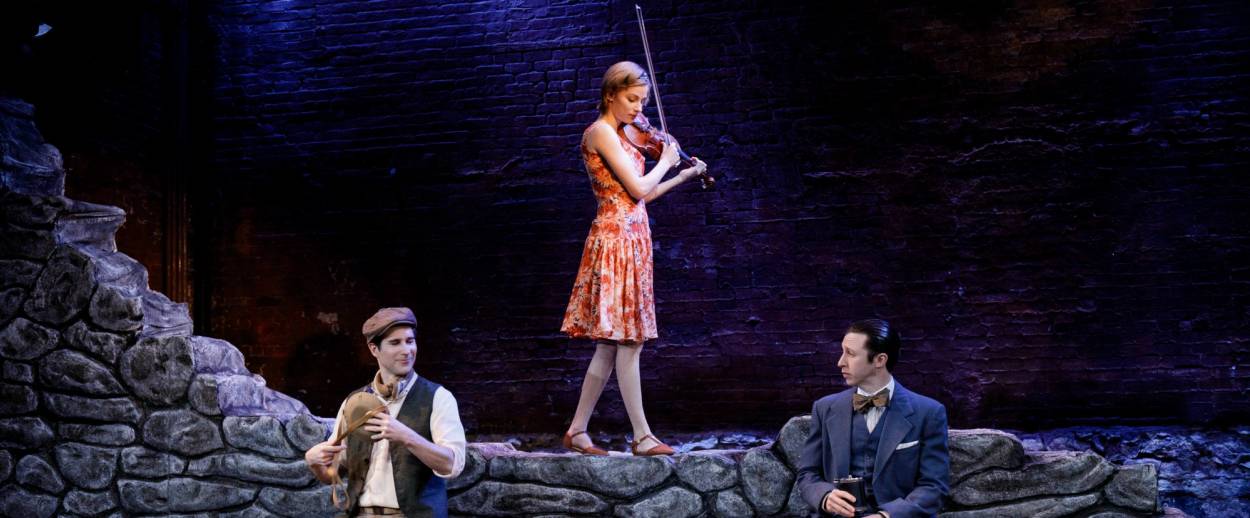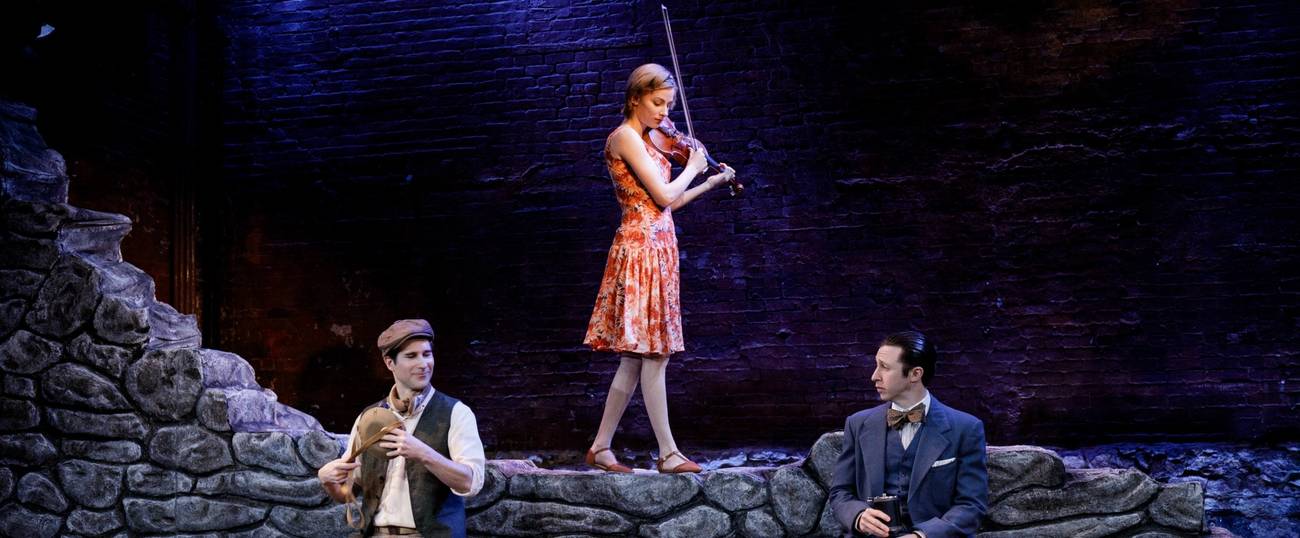In a New Play, Walking and Talking About Jews and Music
‘A Walk with Mr. Heifetz’ imagines the famous violinist in conversations about art, Zionism, ego, and everything in between




In A Walk With Mr. Heifetz, a new off-Broadway play, second- and third-tier historical figures explore Zionism, nationalism, ego, and the power of music.
The play, by British writer James Inverne and directed by Primary Stages Artistic Director Andrew Leynse, focuses primarily on Yehuda Sharett. The name Moshe Sharett may be familiar: He was the second Prime Minister of Israel, sandwiched between the two terms of the titan David Ben-Gurion. And while Moshe still counts as a prominent figure, his brother, Yehuda (played by Yuval Boim), is all but unknown outside of Israel— a lifelong Kibbutznik whose work was as a composer and music educator.
The Mr. Heifetz of the play’s title is Jascha Heifetz (Adam Green)— widely considered one of the greatest violinists of all time, a Jewish man born in Lithuania, raised in Russia, and a resident of the United States from young adulthood on. The first half of the play takes place during a visit Heifetz made to Palestine in 1926, to give fundraising concerts for the not-yet nation. Sharett (Yehuda, that is), asks the virtuoso to take a walk with him (he’s very insistent, and uses his last name as clout to get his way). Heifetz is clearly annoyed by the energetic young Zionist, but the two debate Jewish identity, Statehood, and most of all— music. Sharett tries to lead Heifetz in a rousing niggun, invoking the wordless melody as a metaphor for Jewish peoplehood. Heifetz looks profoundly uncomfortable. Sharett accuses Heifetz of using his celebrity to live a selfish, indulgent lifestyle. Heifetz argues that there is no art without ego. For all the back and forth that these types of plays have, perhaps the subject should be tennis, rather than music.
The play’s second act marks a shift, occurring in 1945, in which the more famous Sharett (played by Erik Lochtefeld) visits Yehuda’s kibbutz to shake his brother out a grief-induced depression— the last few years have held tragedy for both the Jewish people, and the Sharett family personally. While statehood is only three years away, it’s far from assured, and Moshe urges his brother to continue the work of endowing the Jews of Palestine with a culture for which to fight.
“To tell you the truth,” Moshe tells Yehuda, “my dreams have never seemed so fragile as at this moment.”
The fourth and final figure in the play is a violinist (Juilliard alum Marielle Haubs), a mostly background spirit who haunts Yehuda with the melodies that stir his soul and at times drive him to distraction. (A play about music with no music to speak of would be excruciating.) As a walking metaphor, Haubs has no lines, because God forbid a woman should speak onstage, when almost every female character who’s named dies between acts. But she’s far from silent, as her playing underscores the show’s progression.
All four cast members are riveting to watch, which is crucial considering that Inverne’s characters do little more onstage than rail at one another for over an hour and half— the variance doesn’t seem to be in action so much as whether arguments take place outside or inside.
Still, for a play that’s simply a series of arguments, they can be compelling at times. Where does the motivation to create art come from, and can it ever be entirely selfless? How can choices be made against individuals for the common good? How is a politician like a maestro? (Hint: it’s that pesky ego again.)
The show’s conclusions are rather pat, but as with Yehuda Sharett’s frequent walks, it can be more about the journey than the destination. These moments from Israeli history explore how, and why, a people sustains itself.
A Walk With Mr. Heifetz plays at the Cherry Lane Theatre (38 Commerce Street) and runs through March 4.
Gabriela Geselowitz is a writer and the former editor of Jewcy.com.